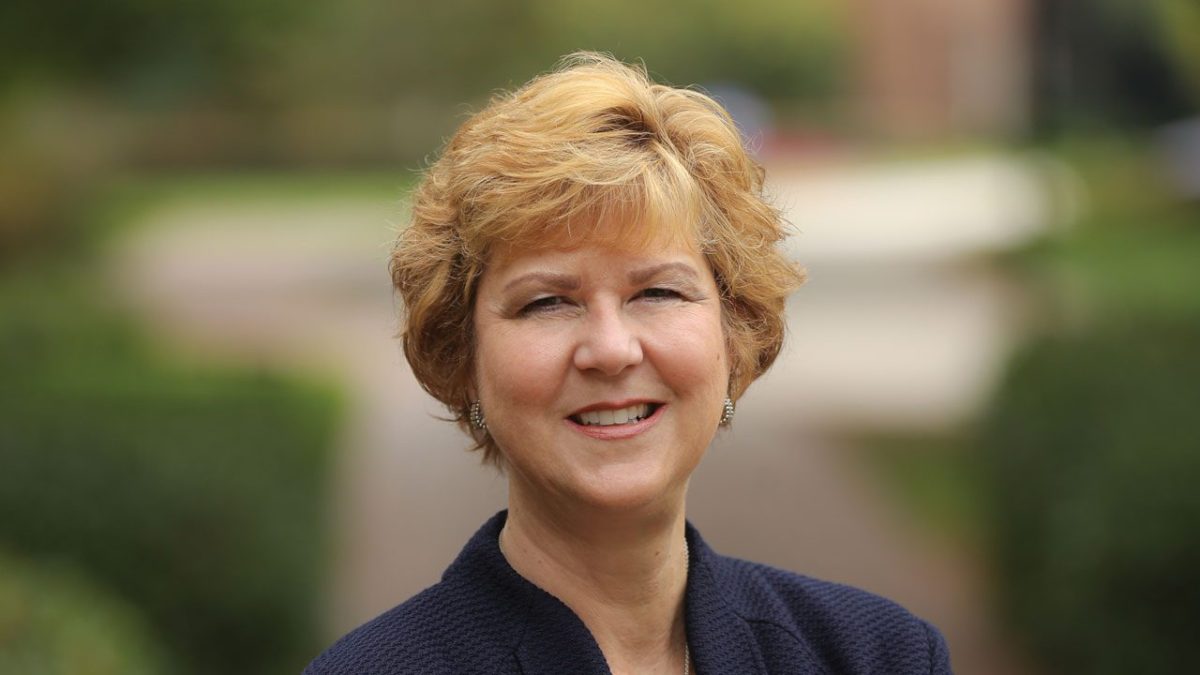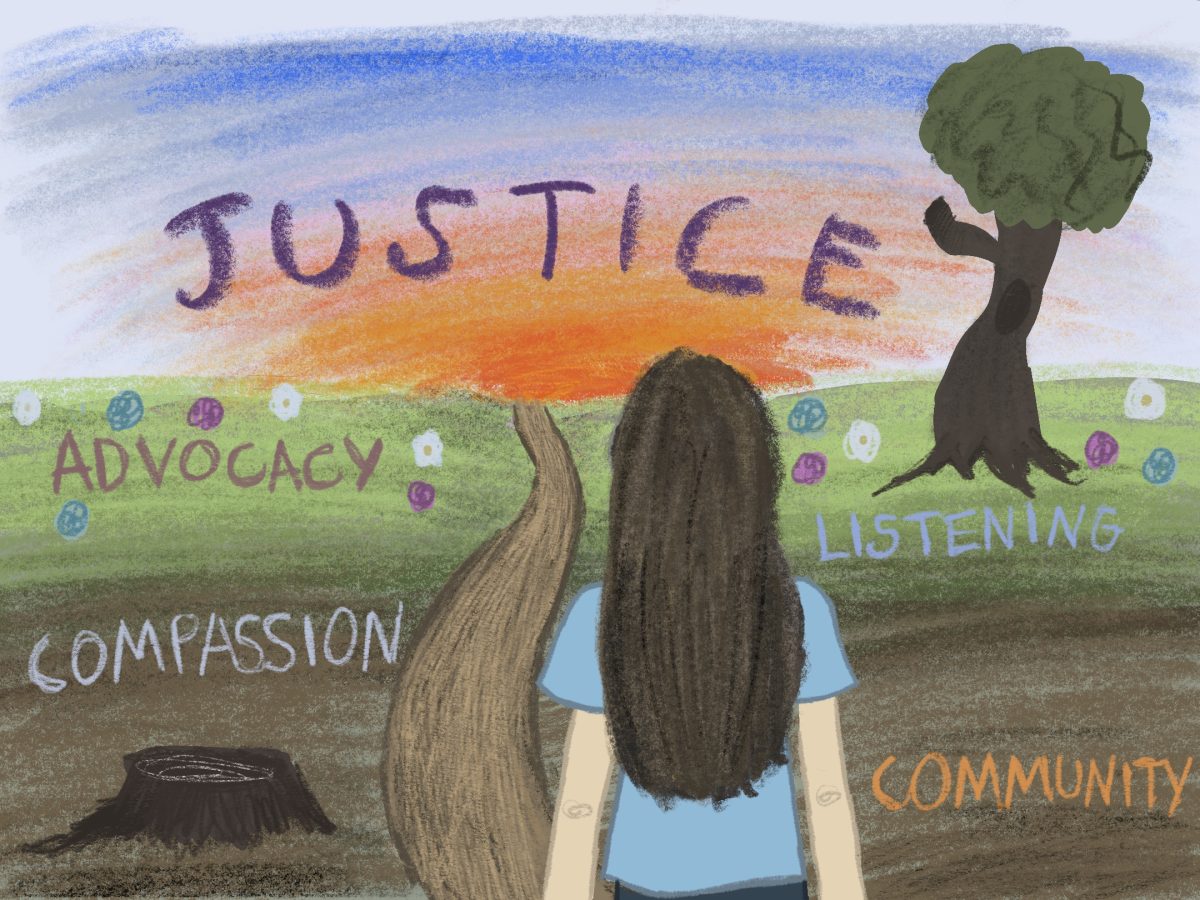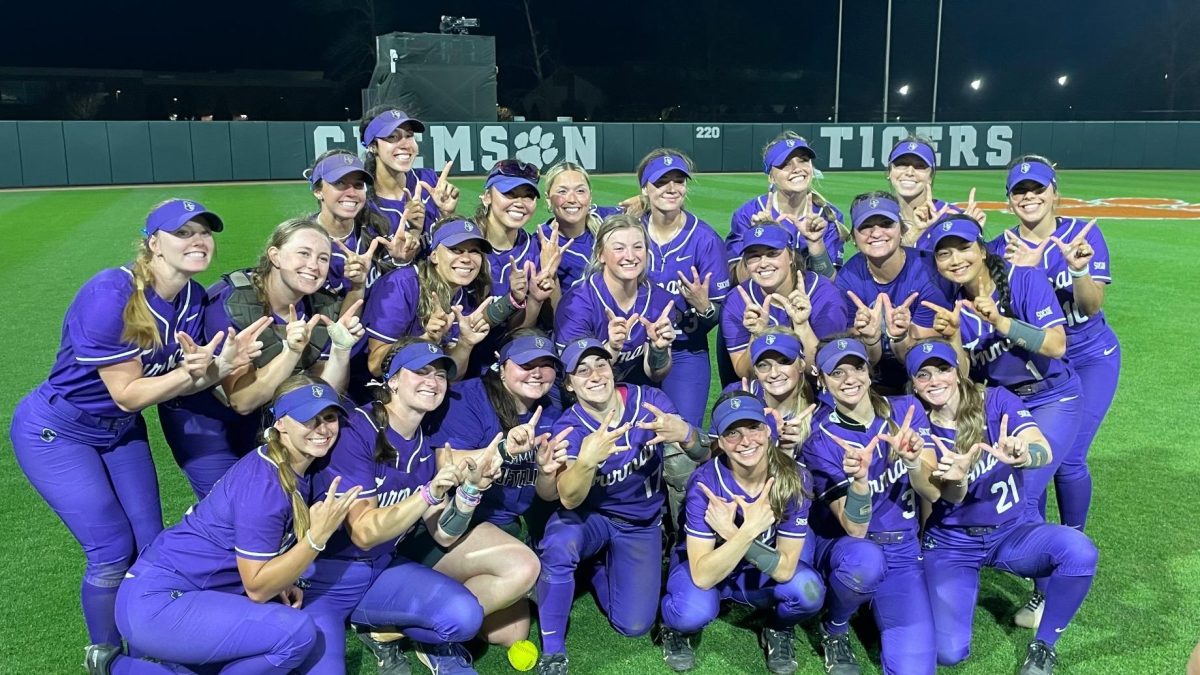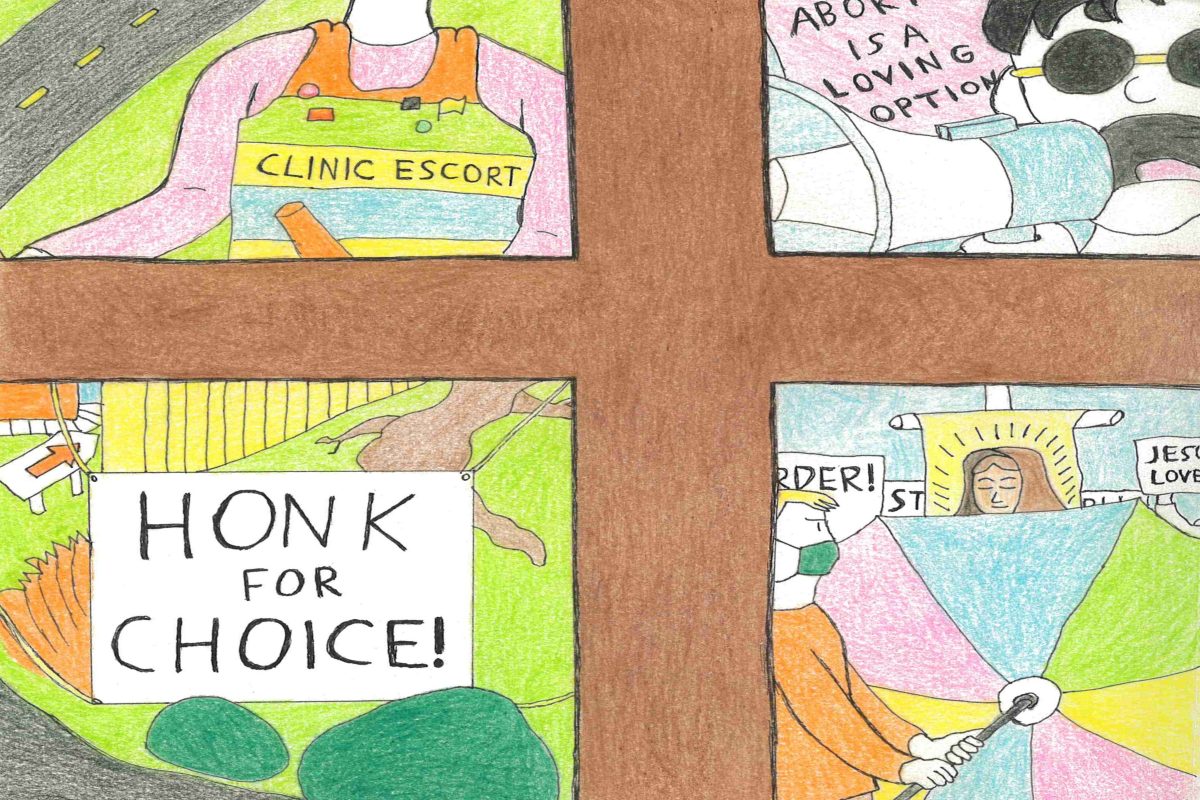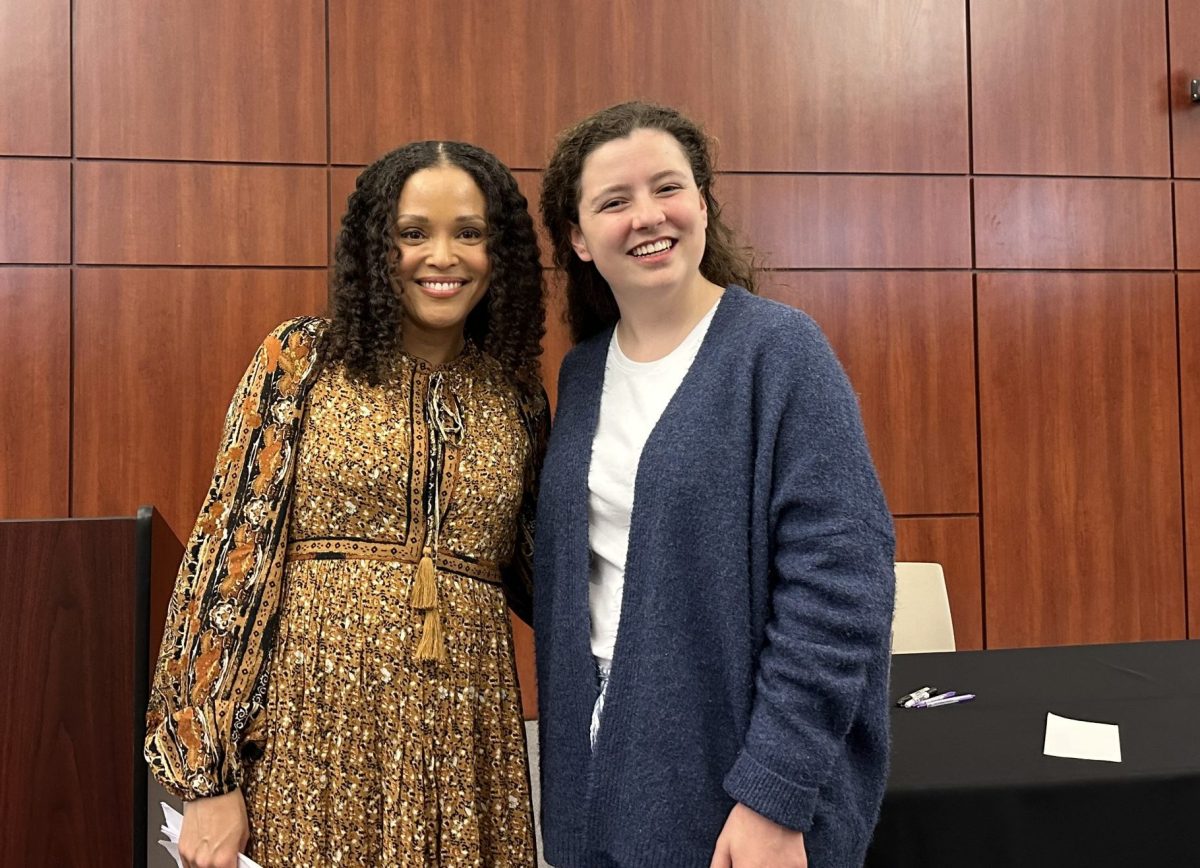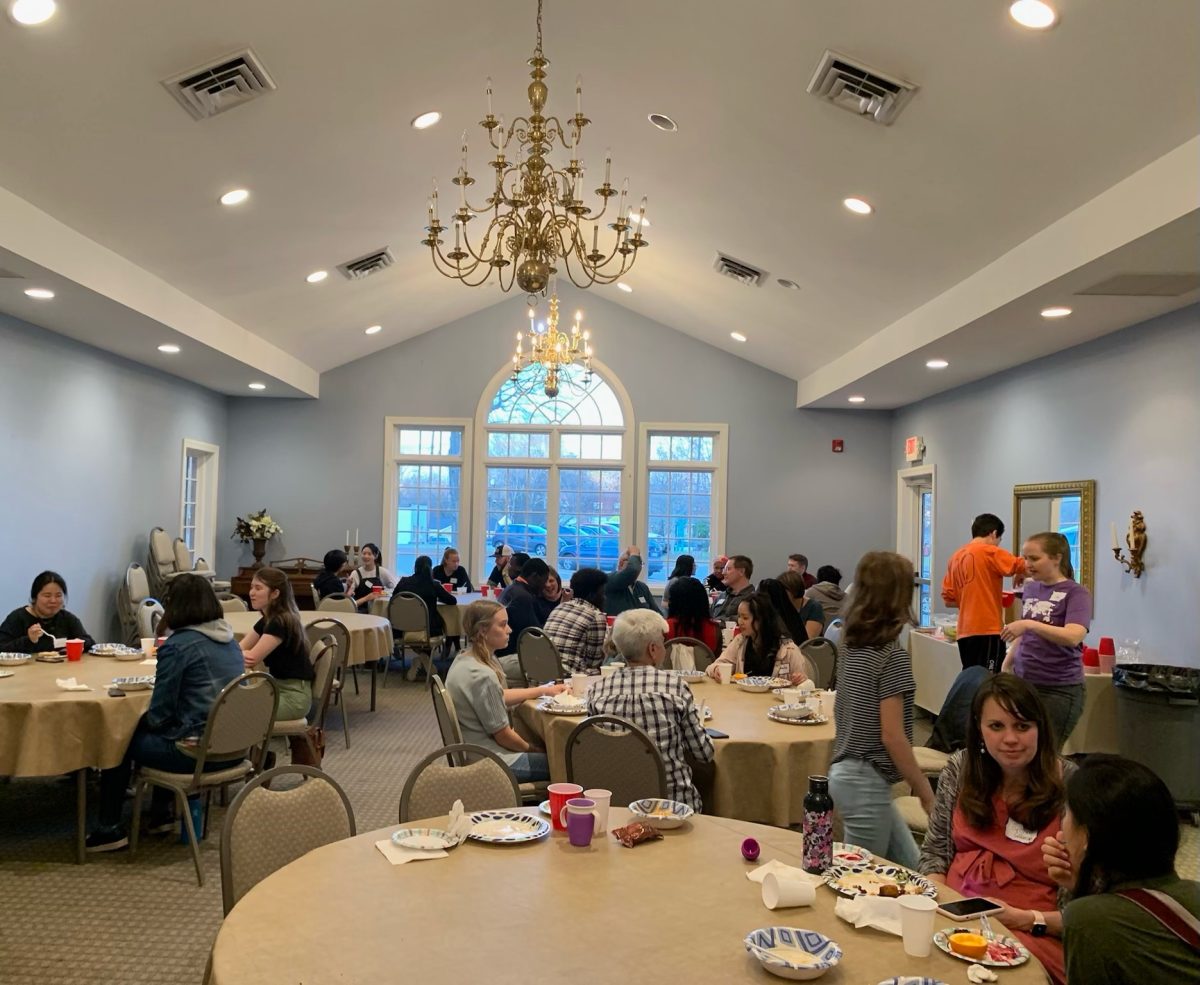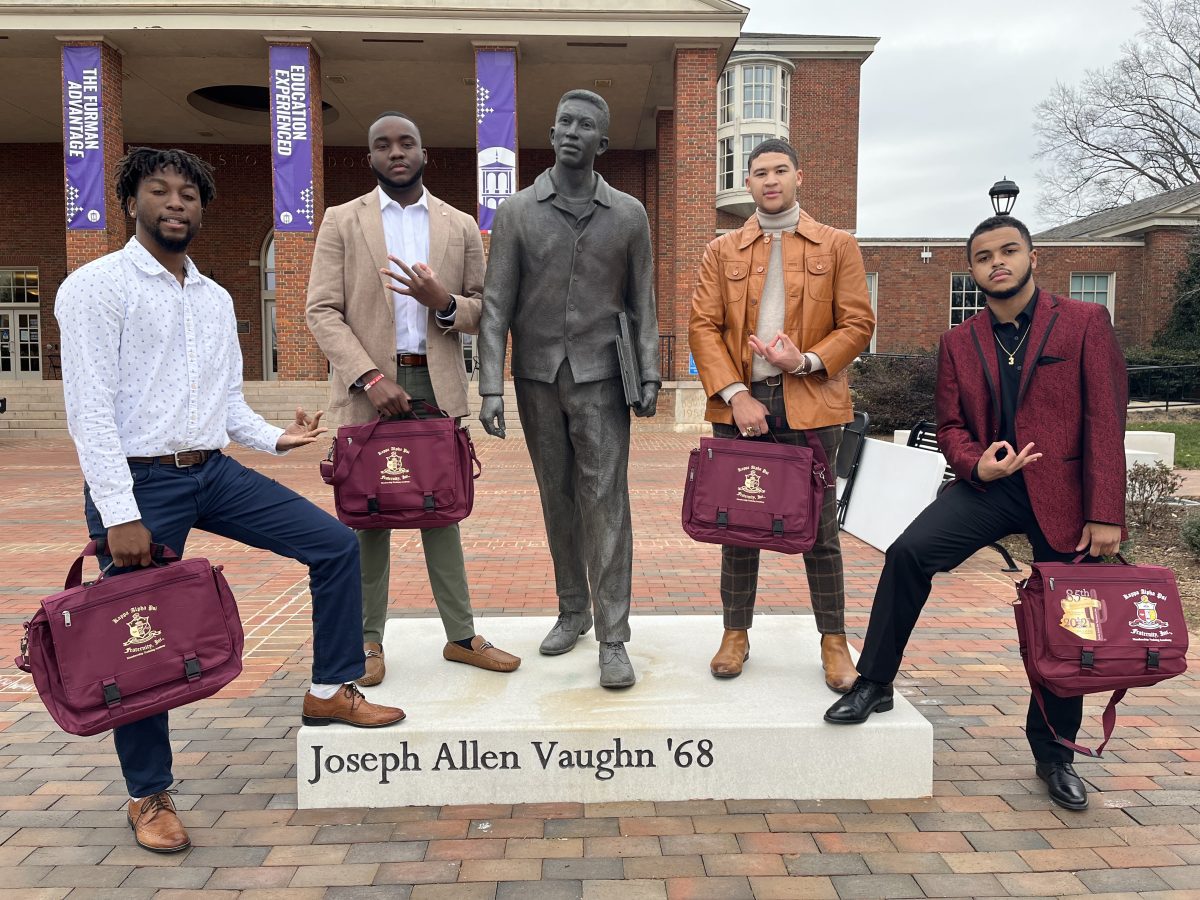One of my most vivid memories of my Summer Orientation experience was Dr. Simmons passionately telling all twenty students in my orientation group to ditch our preconceived notions and plans about majors, minors and other academic and extracurricular endeavors and to instead plunge into what liberal arts education was designed for: exploring, trying new things and allowing ourselves to be surprised by what we find. This was not the advice I expected, but he was convincing and I took his challenge to heart. I signed up for classes I had never previously thought of. My Intro to German class was the one I was most looking forward to. I felt invigorated by the thought of learning a new language and the potential of future opportunities that came with it. But at the end of the first class, my professor reminded the us that we would need to stop by the campus bookstore to purchase the required textbook by the next class.
I would come to find out that this textbook was over $200 at the campus bookstore. I checked countless websites for a more reasonable price and even the course catalogue for a section that required a less expensive textbook to no avail. As a student from a low-income family, though my tuition, room and board were completely covered for my first year at Furman, a $200 textbook just was not in the budget. As a result, I was left with no choice but to drop the course, ditch my dream of German fluency and worry about my language requirement later.
I had hoped that fulfilling my language requirement through a different department might be a little more pocket-friendly, but, sadly, I was mistaken. You can imagine my feelings when I found out that my Intro to Spanish textbook was listed at $378 in the campus bookstore. I went through the same motions from my freshman year: search for the book online, check different course sections. I even emailed my professor to ask for guidance. But this time I was stuck, and I wounded up paying more for a digital copy and access code than for all my textbooks in the previous semester.
This is a common experience of low-income students. I spoke with a couple students on how textbook prices had affected them and found a common thread: astronomical textbook prices created an unfortunate and common burden that low-income students face each semester in addition to other barriers. Though they claim to provide an affordable, quick and easy way to get textbooks, the bookstore’s option to rent used or digital copies is unaffordable. Students who cannot afford textbooks are forced to get creative. One student shared, “I find myself doing a lot of searching for different ways to access certain material. I have never dropped a class, but I have found a couple of ways to avoid purchasing new or overpriced textbooks. Typically, at that first day of class, I scan the room to see which students brought the required textbook. After class, I approach such person, introduce myself and say something along the lines of “my textbook is going to be delivered late. Could I borrow yours for the night?” They usually say “yes”; and that night I go through every reading assignment in the syllabus and take a picture of every page I need. The process is tedious, but , this way, I am able to still keep up with the readings and participate fully in class. If need be, I will print out readings by week so I can highlight and annotate the pages easier.”
Another student, Katie, noted the difference in experience she has at Furman versus her peers. As quoted in another article published in the Paladin, The Problem with Wealth at Furman, the median family income of a student at Furman is $181,500, 71 percent of students come from the top 20 percent of wealth in America and 16 percent come from the top one percent. Whether a family is considered “low-income” or not is contextual and based on family size, location, and data from the American Community Survey census. According to the US Department of Housing and Urban Development, in 2017, a family of four in Greenville making as low as $24,600 or as much as $49,500 could be considered low-income. “There are times that I had to have new textbooks for the online codes, and for those there was no room for creativity. I would have to spend hundreds of dollars for one book for one semester. This normally means that I would go without extra funds for a few weeks until it can be made up, which is scary sometimes,” said Katie. “Most of the kids here do not have issues regarding money, and since I do, I cannot afford to do as many things as my friends. Joining clubs with fees or joining a sorority are out of the question, we could not afford fees on top of tuition. Having a part time job has also prevented me from participating in school activities because most times I need every hour I can get and cannot take off to attend a meeting, or if my car breaks down I cannot immediately send it in to get fixed so I have no way to participate off campus. Simply having to worry about spending too much also keeps me from social events with my friends. Going out to eat a couple times a week or downtown is nearly impossible even though I would love to go and spend time off campus with them. Having to say ‘no’ every time is harsh on any friendship.”
Textbook prices are just the tip of the iceberg of challenges that low-income students face at Furman. At times the experiences and needs of low-income students can seem invisible on Furman campus. The Furman Advantage is set in place to provide access for all students to experience engaged learning opportunities that may not be accessible at other undergraduate institutions, like funded internships and research and affordable study abroad experiences. But these experiences can still be inaccessible to low-income students because funds are given to students not always based on need, but on the simple fact of if they have experienced an opportunity for engaged learning or not. A low-income student may have an opportunity for the same high impact experiences as their peers, but it is typically limited to one experience. Once you receive the financial support from Furman Advantage, you cannot receive it again. Students from higher-income families can elect to participate in multiple high impact engaged learning experiences because they can pay for them, whereas low-income students cannot, making the advantage of higher-income students even greater. Katie finished her thoughts with a sigh: “I have been lucky enough to be able to stay at Furman all four years, but I have seen many friends forced to transfer because of the price tag on a Furman education, which does not include textbooks, class materials, laptops, etc. If Furman accepts a student’s application, they are telling that student they are good enough to attend the school, but if that student has to transfer because they can no longer afford the steep tuition, they are revising their acceptance to mean they are only good enough if they can pay.”
The challenges low-income students face, however, are not invisible to everyone,. Librarians have challenged institutionalized classism for a long time. The rising cost of textbooks and its disproportionate effect on low-income students has been on the minds of librarians at Furman for years. Furman’s former science librarian Andrea Wright led a number of initiatives for textbook affordability and open access and Furman libraries have been committed to providing accessible resources for students since. “We just felt it is something that we needed to do because we heard from students, particularly from our library student assistants, that textbook costs were prohibitive. Several of them described dropping classes because they could not afford the textbook or having to share a textbook with several classmates. We wanted to do something!” said Caroline Mills, Director of Libraries. She added, “The libraries don’t pass on costs to our students.We attempt to get them what they need, when they need it, without an additional cost. Heck, we don’t even charge overdue fines! We offer extensive electronic journal access, pay per view and ebooks. We offer streaming film and music. We offer study guides for grad school testing (LSAT, MCAT, etc.) and are one of the largest employers on campus!”
The libraries began a textbook-on-reserve initiative in the fall of 2018. With approval of the professor, textbooks that met specific criteria were acquired by the library and placed on one-hour reserve at the appropriate library for student use. “That semester we only had about a dozen professors participate, but the number of professors participating has gone up over time and circulation is robust on those texts that are available,” Mills noted. She also mentioned that the key to making this initiative successful is faculty members working with the library to get the materials and promote their availability in their syllabus and in class. Out of the couple of students I interviewed, only one had heard of the library’s textbook program, and she admitted it was only because she had overheard an older student talking about it. The only drawback, Mills pointed out, is the movement to textbooks that are supplemented with an online-access-only code. The library is not able to provide those because they are single-use, yet these often pose the greatest challenge to low-income students because they are the most expensive. “Our textbook on reserves isn’t a perfect solution but it is a first step,” said Mills.
When asked how they would like to see Furman better support low-income students, the thoughts of low-income students and librarians echoed each other. “If the school requires new books and access codes, which can easily cost over $200 a book, I think they should have a system in place to help make it affordable because if a low-income student cannot afford the materials to take a class, we’re set up for failure,” said Katie. The system that Katie is calling for could take on a number of different appearances. It could include a greater institutional support of the current library textbook reserve initiative, funds built into departments that require textbooks with hefty price tags to be available to students with need through textbook scholarships, and/or individual professors taking the initiative to find ways to make their course material more accessible for students. Anna, a student at Furman, suggests professors should limit the number of texts they require in a course and use earlier editions to cut costs. Another student recommended professors to take the extra time to scan and upload specific chapters and passages for an assignment instead of requiring a book that may not be read in its entirety.
Library Outreach Assistant Miles Dame and Caroline Mills both underscored the importance of Open Educational Resources (OERs). “The biggest (related) way that I would like to see Furman better support low-income students is by encouraging faculty to use more OERs,” said Mills. “OERs are textbooks or educational materials that are freely available in the public domain or that have been released under a license that allows them to be freely used. This means that students will be able to have direct access to the resource at no charge. The choice of course support materials is very individual and trying to find an OER that complements the course is challenging but as more faculty choose to use, or better yet, create OER for their classes, the more textbook publishers will be challenged to create cost conscious alternatives.” Dame agreed, saying, “When a textbook costs over a certain threshold, perhaps there should be a process that requires written justification for why that textbook is being selected instead of an OER. I like to imagine a world in which textbooks are free or virtually free and the main cost a student has is buying an e-reader or tablet on which to read them.”
There are valid reasons why professors may choose an expensive textbook and/or one with an online-only access code. A professor may feel that the best information for their course is found in a text that happens to be expensive or a textbook with an online component may make their teaching and grading easier, but astronomical textbook prices signify just another instance of institutionalized classism that marginalizes and disadvantages our students from low-income backgrounds. There are relatively small support systems we can put in place to help create easier and better access for our low-income students. If the Furman Advantage is really committed to creating access to and supporting true liberal arts education, we must work to break down the barriers that our low-income students face. All students deserve to take the advice of Dr. Simmons and plunge into the liberal arts experience without limits to what classes and experiences they can have because of financial barriers.





